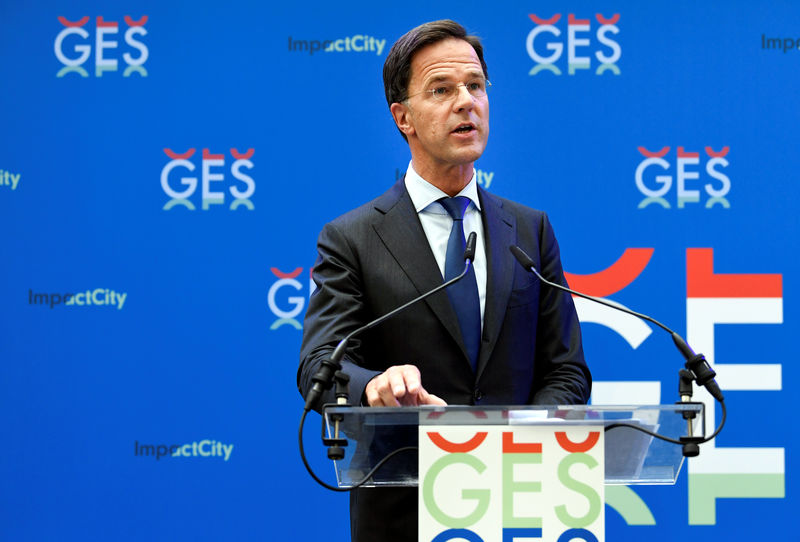By Ryan Woo
BEIJING (Reuters) - China has stuck to its climate change goals even with a slowing economy - the world's second largest - and a trade war with the United States, Dutch Prime Minister Mark Rutte said on Thursday.
Nations exposed to the ill effects of global warming have put their faith in Beijing to help save the 2015 Paris Climate Change Agreement after President Donald Trump withdrew the United States from the deal, reached before he took power.
"China has so far been a staunch supporter of the Paris Climate Agreement. In some ways, it's even ahead of delivering on its targets," Rutte told Reuters in an interview in the Chinese capital on Thursday.
"(China's) Premier Li Keqiang and I with our delegation discussed ... climate mitigation and adaptation ... at length. It will also create a lot of new jobs in the new economy," Rutte said when asked if China might play down its longer-term climate targets as its economy slows and trade clashes with Washington persist.
Rutte was on a visit at Li's invitation to weigh bilateral ties and also open in Beijing the first regional office of the Global Center on Adaptation (GCA), a Dutch-led initiative to support countries looking to adapt to climate change.
Commitments to fight global warming were expected to be addressed at the Group of 20 summit in Japan this week. In drafts of the summit communique, the United States was pushing to water down the language.
China has avoided direct comment on the tussle over language. A spokesman at the Chinese foreign ministry said on Thursday he expected the summit to send positive political signals with respect to combating climate change.
China has said it cut carbon emissions by 45.8% last year from the level in 2005, exceeding the goal of a 45% cut by 2020 it undertook under the Paris accord.
Given the huge size of its economy, China has "moral and political responsibility regardless of what their economic development rate may be," Ban Ki-moon, former secretary-General of the United Nations and GCA board chairman, told Reuters.
China's economy is growing at its slowest pace in almost 30 years as domestic demand wanes and the bitter trade war with the United States, the world's largest economy, clouds its near-term outlook.
Developed nations have pledged to mobilise $100 billion a year in financing for climate change-vulnerable countries by 2020 but have not set out path to reach that objective.

"It's important also for the trust in the global governance system that the donor community comes forward and delivers on its promise," Patrick Verkooijen, GCA's chief executive, told Reuters. "That includes China but also ... the United States."